Xi Jinping is China’s man with a five-year plan
Next week, President Xi Jinping and the country’s political elite will gather in Beijing’s Great Hall of the People for the biggest annual political event in the world. They have plenty to celebrate.
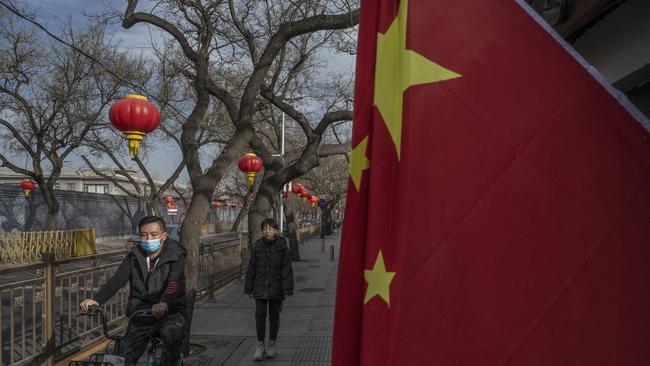
Xi Jinping means it when he says “time and momentum are on our side”. Next week, China’s President and the country’s political elite will gather in Beijing’s Great Hall of the People for the biggest annual political event in the world. They have plenty to celebrate.
The more than 5100 delegates at the “two sessions” — shorthand for the concurrent meetings of the National People’s Congress, the closest thing to a parliament in China’s Communist Party-led system, and the Chinese People’s Political Consultative Conference, the country’s leading advisory group — will congratulate themselves on achieving every major commitment in their just concluded 13th five-year-plan.
“Basically, it’s a checklist of what’s been done,” Centre for China and Globalisation president Wang Huiyao tells Inquirer.
Top of that list is the elimination of poverty in the world’s most populous country. Xi, who is also general secretary of the Chinese Communist Party, announced its achievement in early December last year, four weeks ahead of schedule.
“We have completed the arduous task of eradicating absolute poverty and created another miracle in the annals of history,” Xi told comrades at a ceremony this week.
It is a remarkable achievement and a meticulously timed one, coming months before the CCP’s 100th anniversary on July 1. And Xi is not done yet.
This week, Xi and the other 5137 delegates attending the two sessions will refine their plan to overtake the US as the biggest economy. They have never been closer.
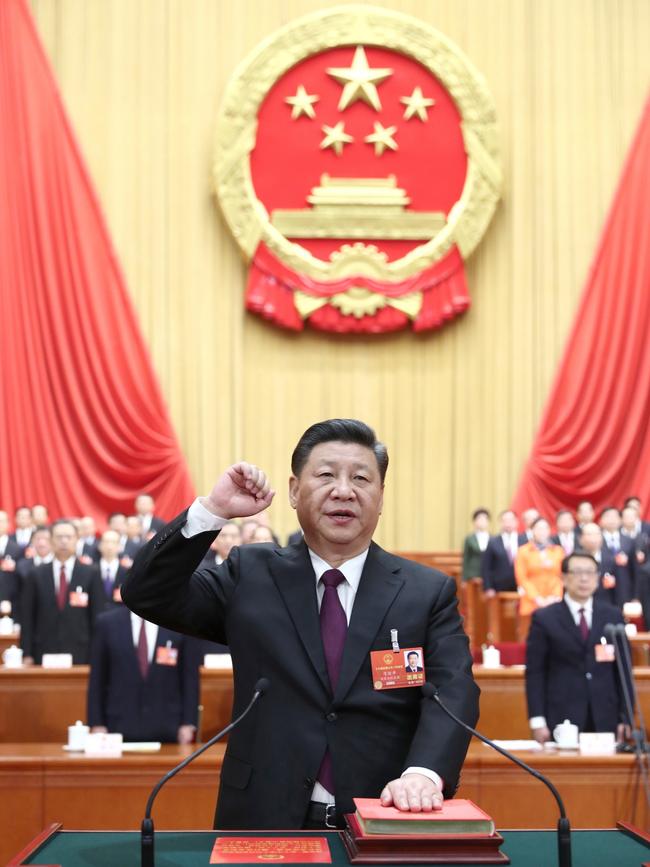
“This is where we show our conviction and resilience, as well as our determination and confidence,” China’s leader instructed senior officials at a planning session for the upcoming meeting.
In the 1950s, Mao Zedong boasted that communist China would overtake the US economy in 30 years. The gap between Mao’s ambition and life in the People’s Republic of China remained profound until his death in 1976.
Things have changed.
Last year, Brookings Institution senior fellow in global economics and development Homi Kharas forecast that China would reach parity with the US economy in 2028 in absolute terms. He shaved two years off his previous estimate because of China’s superior management of COVID-19.
Last month, researchers at investment bank Nomura predicted China — the only major economy in the world to grow last year — could overtake the US as the largest economy by 2026.
That would be months after the conclusion of China’s 14th five-year-plan, the guiding document that will be released at next week’s gathering and that is expected to run to thousands of pages.
Little wonder China’s governing class speaks with increasing confidence about its model, as the CCP stewards one successful five-year-plan after another.
“I think this exercise is quite unique to China,” Beijing-based Wang says.
Donald Trump will not get an author’s credit but the former US president has been a huge influence on Beijing’s impending five-year plan and its accompanying blueprint to 2035. The Trump administration crippled Chinese companies, including tech champion Huawei, with sweeping sanctions designed to set back its ambitious rival.
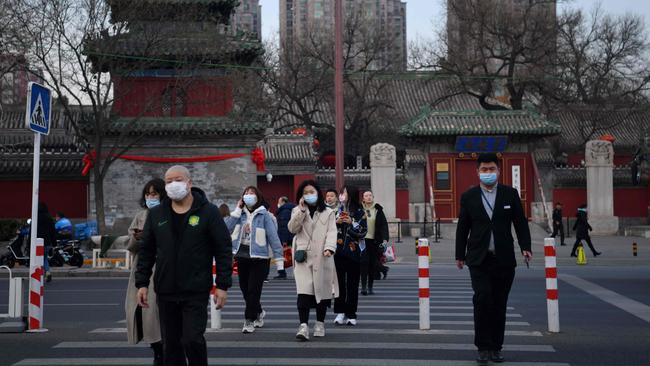
More than 60 Chinese companies — including leading computer chipmaker Semiconductor Manufacturing International Corporation — were black-listed during Trump’s final weeks in power. It has made becoming a leader in science, technology and innovation a national security issue for China’s leaders.
China Policy, a Beijing-headquartered advisory firm, says the rising power is determined never to be that vulnerable again and will respond with what Xi calls “the unique ability of the socialist system to concentrate resources”.
Huge sums will be invested as China’s leaders respond to the “dread of being ‘decoupled’ ”.
“National labs, megaprojects and special programs will be launched, and research funding agencies, universities and public research institutes will be expected to align their priorities accordingly,” China Policy predicts in a new briefing commissioned by the Asia Society Australia.
Targets set at provincial meetings held in the lead-up to next week’s meeting suggest China will set a national gross domestic product growth target of about 6 per cent for 2021.
That would be a conservative target by China’s standards. Last month the International Monetary Fund forecast the Chinese economy would grow by 7.9 per cent this year.
Beijing’s focus is on avoiding the middle-income trap in the coming decade.
“Quality must trump speed,” China Policy says in its preview of next week’s five-year plan.
The advisory — led by director Philippa Jones, formerly an Australian trade official based in Beijing — predicts a lift in retirement ages, which are set between 50 and 60 depending on sex and occupation. Those limits have not been touched since 1978.
“With birthrates falling to a critical level in 2019, if nothing is done retirees will equal the workforce in number by 2050,” China Policy says.
The country’s energy policy is also in flux as the government plots a course to deliver Xi’s pledge to achieve carbon neutrality by 2060. Next week’s power generation targets will be watched closely. Coal currently dominates China’s energy mix with a 60 per cent share. Some informed commentary has suggested that could fall as low as 50 per cent by 2025.
Guiding all of next week’s economic discussions will be Xi’s “dual circulation” concept. Its essence is resilience, an understandable focus after the Trump administration’s no-holds-barred trade war.
“Xi’s dual circulation paradigm envisions an ultra-large domestic market (the primary cycle). This would enable China to be less subservient, hence more strategic, in interactions with global markets (the secondary cycle),” China Policy writes.
Hong Kong had a star turn at last year’s two sessions. The city may have a cameo again.
Bernard Chan, one of Hong Kong chief executive Carrie Lam’s top advisers, will head to Beijing next week as one of the city’s 36 delegates to the National People‘s Congress.
He told Inquirer that last year the delegation representing the city’s government learned there was a Hong Kong item on the meeting’s agenda only after they had checked into the state-owned Beijing Hotel.
And — in an illustrative example of how China is governed — it wasn’t until after the political event began that the Hong Kong government learned the details of the national security law, Beijing’s response to months of protests in the former British colony.
“I knew something had to be done. But it surprised me, the way they did it. I didn’t know there was such a way,” says Chan, a well-connected member of Hong Kong’s political and business establishment.
The CCP’s most senior Hong Kong official this week announced that only “patriots” could participate in the fractious city’s government. The next day, Hong Kong’s government responded with a proposed law to bar local politicians from contesting elections for five years if they had been disqualified for not taking their oaths properly.
Further political reordering of the city could emerge soon.
China’s debt load remains a source of grief for Beijing’s financial policymakers. Crisply distilling the policy problem, the South China Morning Post this week calculated that 15 of the delegates attending next week’s two sessions own or run real estate companies that have a combined 2.44 trillion yuan ($472bn) of debt.
The wealthiest of these moguls is Evergrande Group’s chairman Hui Ka-yan — China’s 14th richest person, with a fortune valued at $32bn — whose overstretched apartment developer last year stoked fears of contagion in the country’s financial markets.
“They have to present a doable solution at the two sessions, showing how they are going to reduce their debt and what their schedules are,” Morningstar senior equity analyst Phillip Zhong told the Post.
Also along will be hosts of bellicose People’s Liberation Army generals, declaiming “separatists” in Taiwan and demanding more funding for the military.
The PLA, combined with the paramilitary People’s Armed Police, has about 400 delegates at the NPC, making it the largest grouping.
It is an important constituency for Xi, who is also chairman of the Central Military Commission and commander-in-chief of the Joint Operations Command Centre of the People’s Liberation Army.
Last year, China’s defence spending rose by 6.6 per cent to 1.29 trillion yuan, down from a 7.5 per cent rise in 2019. Analysts forecast another tight year as the government prioritises economic recovery after the COVID slowdown.
Most of the two sessions’ enormous agenda will receive no coverage at all outside of China.
Among thousands of policy issues, delegates will discuss new laws to discourage “cram schools” — or “crammers” — where many Chinese students go after school seeking an edge in the country’s ferociously competitive exam system.
And time will be devoted to the “Clean Plate” campaign, a Xi pet project that became a focus last year after the People’s War on COVID-19 had largely been won.
A new law will propose that catering services should be fined up to $2000 if they “encourage or mislead” customers to order more food than they need.
“The draft also bans the making or broadcasting of programs or videos featuring excessive eating,” state media reported this week.
Whatever the topic discussed at the two sessions — whether the economy, military spending or overeating — Xi’s guiding role will be underlined by the CCP’s mighty propaganda department.
Dubbed the “chairman of everything” years ago, Xi has become even more omnipotent ahead of next year’s 20th party congress at which he will be anointed for a third term, passing a two-term limit championed by Deng Xiaoping.
Liu Lei, a 37-year-old NPC delegate from Heilongjiang and member of the Hezhe ethnic group, met the President during a discussion of the affairs of the northeast Chinese province at the NPC in 2016.
“I was surprised by how well the President knew our culture. He mentioned a song of our ethnic group to me,” she told the state-controlled China Daily, which photographed her in the exuberant headdresses all non-Han delegates wear to the two sessions.
“I was so inspired,” she said.


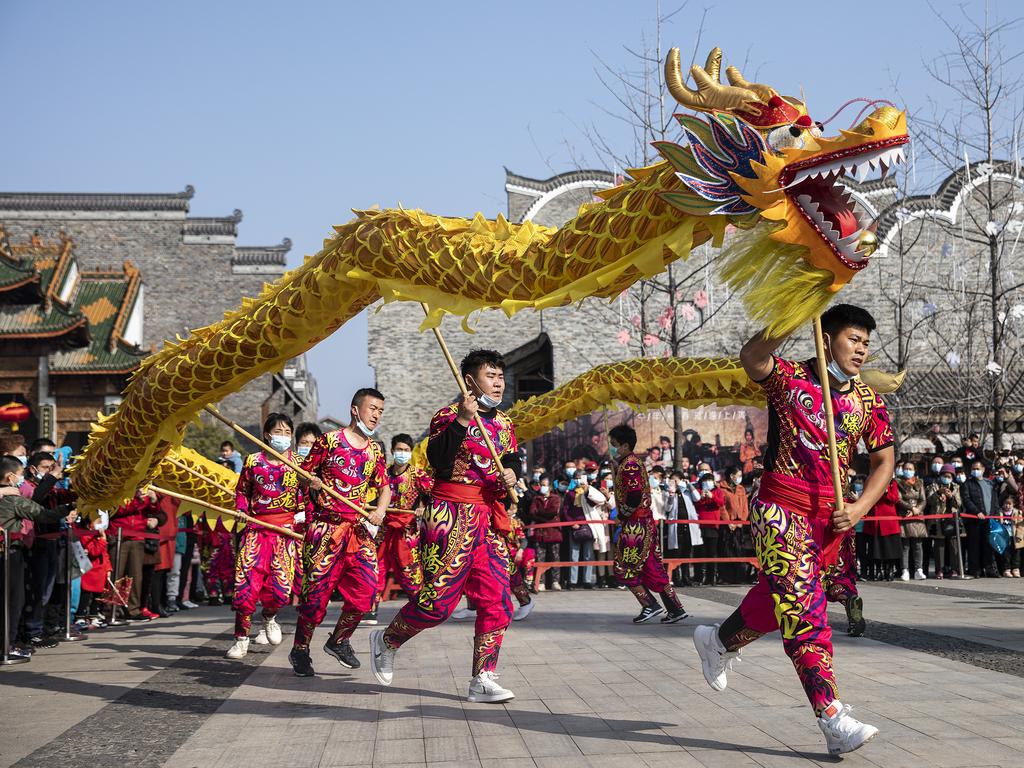

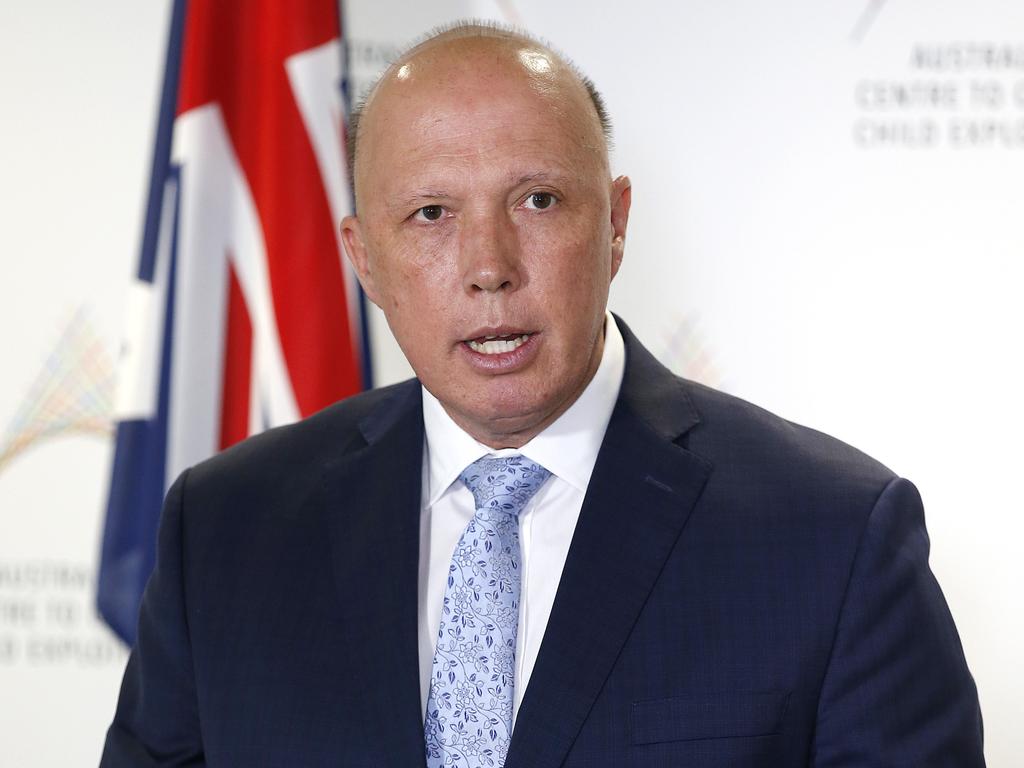
To join the conversation, please log in. Don't have an account? Register
Join the conversation, you are commenting as Logout